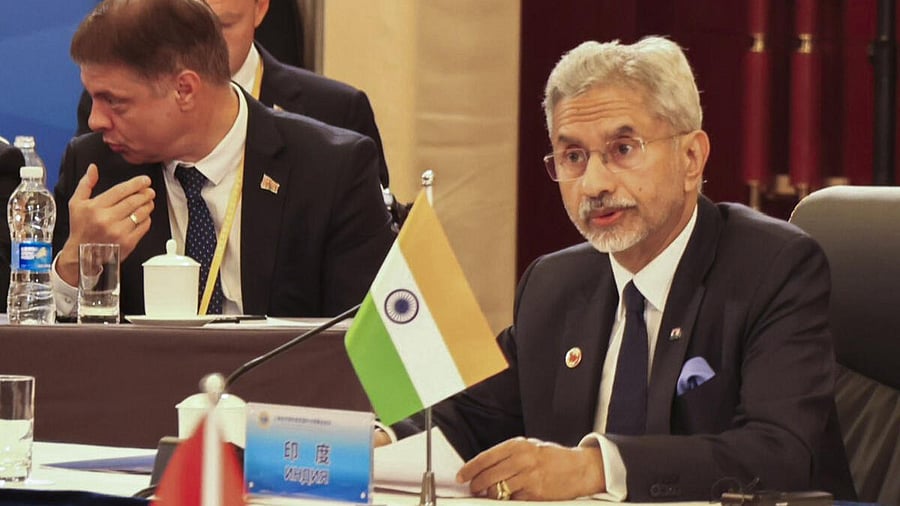
In this image posted by @DrSJaishankar via X on July 15, 2025, External Affairs Minister S Jaishankar during SCO Council of Foreign Ministers Meeting, in Tianjin, China.
Credit: PTI Photo
New Delhi: India and Pakistan on Tuesday sparred over the April 22 terrorist attack in Jammu and Kashmir during a Shanghai Cooperation Organisation (SCO) conclave hosted by China.
External Affairs Minister S Jaishankar tacitly hit out at Pakistan, raising the issue of the terrorist attack in Pahalgam and alleging that it was deliberately conducted to undermine the tourism economy of J&K as well as to sow a religious divide in India. His counterpart from Islamabad, Ishaq Dar, however, rejected India’s allegations about Pakistan’s role in the attack, “without a credible investigation and verifiable evidence”.
Jaishankar, Dar and the foreign ministers of the other SCO nations met at Tianjin in northern China. The conclave was hosted by Foreign Minister Wang Yi of China.
“The three evils that SCO was founded to combat were terrorism, separatism and extremism. Not surprisingly, they often occur together,” Jaishankar told the other SCO foreign ministers, adding: “Recently, we in India, witnessed a graphic example in the terrorist attack in Pahalgam on 22 April 2025. It was deliberately conducted to undermine the tourism economy of Jammu and Kashmir, while sowing a religious divide.”
He referred to the UN Security Council statement condemning the carnage in the strongest terms and “underlined the need to hold perpetrators, organisers, financiers and sponsors of this reprehensible act of terrorism accountable and bring them to justice. “We have since done exactly that and will continue doing so. It is imperative that the SCO, to remain true to its founding objectives, take an uncompromising position on this challenge."
After the killing of 26 people, mostly tourists, at Baisaran near Pahalgam in J&K on April 22, India, on May 7, launched “Operation Sindoor” targeting terrorist camps both in Pakistan and areas under the illegal occupation of Pakistan. The retaliatory strikes by the Pakistani Army on civilian and military targets in India resulted in a cross-border flare-up, which continued till an understanding was reached on May 10.
Dar avoided naming India but alleged at the SCO meeting that Pakistan’s restrained and responsible approach in the wake of mounting tension had been met with transgressions, rhetorical belligerence and strategic recklessness.
He said that Pakistan could not accept normalisation of the arbitrary use of forces. “We believe that disputes and differences are resolved through dialogue and diplomacy, instead of conflict and coercion. In that backdrop, the initiation of a comprehensive and structured dialogue can meaningfully address the full spectrum of issues that have long bedevilled the peace and security in South Asia,” he said, subtly asking for the resumption of bilateral dialogue between Islamabad and New Delhi.
Prime Minister Narendra Modi made it clear that if New Delhi were to ever hold talks with Islamabad, only two issues would be discussed – the end of anti-India cross-border terrorism from the territory of Pakistan and the end of Pakistan’s illegal occupation of the areas of the Indian Union Territory of Jammu and Kashmir.
Dar also argued for “strict adherence to bilateral agreements” at the SCO meeting, subtly nudging New Delhi to review its decision to suspend the 1960 India-Pakistan Indus Water Treaty. India had suspended the treaty in response to the terrorist attack carried out by terrorists from Pakistan on April 22.
